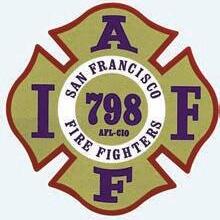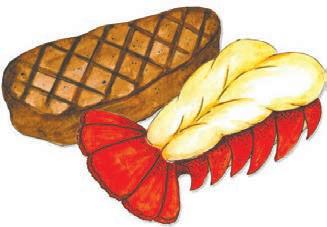

Multiple Efforts to Provide Health Care to Populations Experiencing Homelessness
BY JESSICA ZIMMERThe San Francisco Department of Public Health (DPH) offers medical care to people experiencing homelessness throughout District 10. Two programs, Street Medicine and Shelter Health, play a predominate role in these efforts.
According to Rachael Kagan, DPH communication director, Street Medicine is mobile, serving people sheltering in encampments, roads, parks, and under bridges. Street Medicine also responds to the Healthy Streets Operations Center, which opened in 2018 to offer coordinated, real-time, responses to camps and unhealthy street conditions. In addition, Street Medicine treats individuals with addictions at clinics and syringe access sites.
Shelter Health operates from shelters and navigation centers, including the Central Waterfront and Bayshore facilities. The two programs share a team of 43 professionals, comprised of doctors, nurse practitioners, nurses,
psychiatrists, health workers, social workers, peer counselors, and administrative staff. Both programs are funded by Medi-Cal and the City and County of San Francisco’s general fund.
“Shelter Health clinics are nurserun and friendly, with health care staff that visit each site at least two days a week. When a person walks in the door, they’re treated like a primary care patient right away,” said Kathleen Shuton, Shelter Health director and a registered nurse.
The clinics treat minor ailments, such as colds, as well as serious concerns, like emergent, urgent, and chronic disease management. Getting patients to accept care can require resourcefulness and creativity.
“You need to build trust,” said Shuton. “We have really special nurses and staff. Clients will talk to them when they never wanted to talk to a health professional before. We show
HEALTH CARE continues on page 10
Neighborhood Wants Stay Gold to Go
BY MICHAEL IACUESSAA proposal to open a cannabis dispensary at 667 Mississippi Street will be considered by the San Francisco Planning Commission on February 6 after a neighborhood group voiced concerns over the number of children living on and passing by the block.
Friends of Mississippi Street, which formed last summer when the dispensary concept surfaced, has pointed out that there’s another cannabis outlet, Dutchman’s Flat, on Third Street, with three others in the works at 165 Mississippi Street, 600 Indiana Street and 457 Mariposa Street.
“The law was not meant to place dispensaries within close proximity,” the group wrote in a request for a discretionary review (DR). “This is sending a conflicting message to kids; to not use drugs but allow for placement near where they reside.”
A DR request automatically triggers a hearing before the Commission rather than allowing Planning Department staff to determine a project’s outcome.
The Mississippi business, Stay Gold, wants to open a 600-square foot retail space operating from 9 a.m. to 10 p.m., with a 200-square foot lounge for patrons to consume cannabis.
Although zoned for mixed use, with the exception of the proposed dispensary building the block has been entirely residential since a 91unit apartment building replaced an industrial one across the street three years ago. According to residents, 40 percent of the units in the building are multi-bedroom, designed for families with children.
“People who live here have become used to the change from commercial to residential,” said Don Henry, one of 15 Dogpatch residents who attended a community meeting sponsored by Stay Gold last month.
While one neighbor at that meeting, Rodney Talmadge, objected to the enterprise’s drug-related aspect, others had less issues with it. “Our objection isn’t to marijuana. It’s retail,” said
Mission Creek’s Great Backyard Bird Count
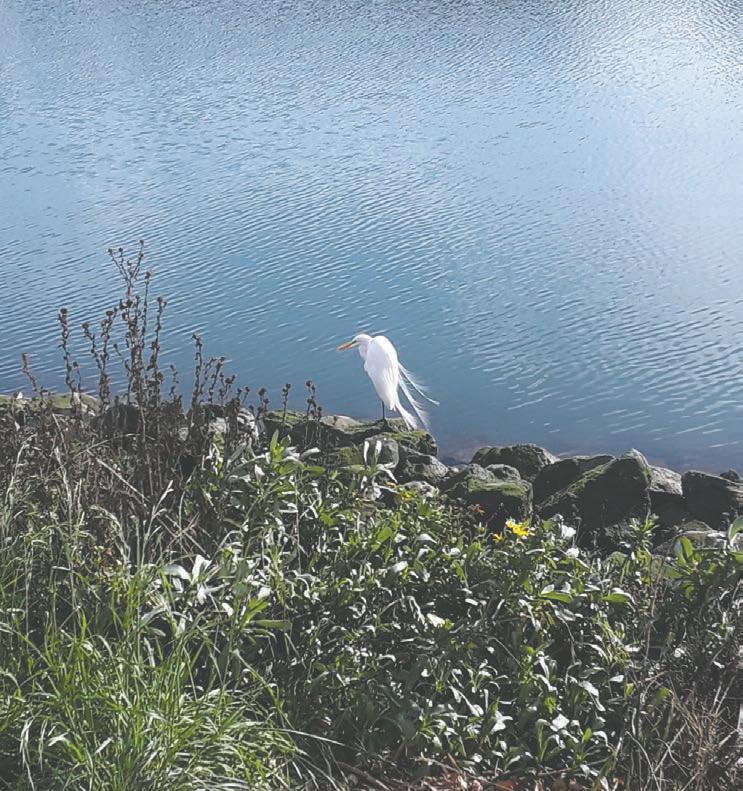 BY BETTINA COHEN
BY BETTINA COHEN
The Great Backyard Bird Count (GBBC) is a collaborative effort led by the National Audubon Society and Cornell Lab of Ornithology to gather data on local bird populations throughout the world. Launched in 1998, the GBBC takes place annually over the four-day Presidents’ Day weekend. This year, that’s February 14 to 17.
Anyone can participate in the GBBC; having a backyard isn’t required. According to gbbc.birdcount. org, 160,000 people engage in the online citizen-science project worldwide, creating an annual snapshot of the distribution and abundance of our feathered friends. A minimum of 15 minutes of observation on any of the four days suffices. Avid avian buffs may spend substantially more time than that over the four days compiling their lists. A contributor files their tally under their account on the website, recording all detected species, as well as their numbers, within a defined area.
Counting wild birds around Mission Creek on the Saturday morning of Presidents’ Day weekend is a tradition
started by Beth Kamienecki, a 30-year resident of Mission Creek’s iconic houseboat community. Over the years the faces have changed, but the midwinter jaunt has consistently drawn a group of ten, give or take, who meet on a bench outside the Mission Bay Branch Library on the north esplanade, by the Fourth Street Bridge.
Kamienecki registered Mission Creek as a bird count locale on the GBBC website in 2010 and has reported annual tallies ever since. She became enamored with birds after moving into her floating home at the edge of what was then a prairie of sweet fennel, wildflowers, and tall grasses.
“When I came here, there was nothing!” she recently recalled. “We used to have a lot of Western Meadowlarks in the field across the road from us. I would watch a Meadowlark sitting on the fence, singing. They’re gone now.”
Her front row seat to waterfowl and shorebirds prompted Kamienecki to enroll in seven years of City College of San Francisco classes taught by locally renowned ornithologist Joe Morlan.
Rapa
BY STEVEN J. MOSSLast month I was privileged to travel to Rapa Nui, also known as Easter Island. The isle is a speck in the vastness of the Pacific Ocean, 2,190 miles from the Chilean coast. The Pitcairn Islands are 1,290 miles away; Tahiti, 2,700 miles distant. It’s one of the world’s most isolated inhabited islands, with perhaps 10,000 people visiting or living there at any one time.
The Island pulsates with color and ancient magic. Its interior, deforested centuries ago, is dominated by brilliant green meadows, fields, and brush interrupted by red-grey volcanic rock, surrounded by a hallucinogenic-blue ocean with an endless horizon. There are few animals, apart from the steady presence of free-range cows, horses, and dogs.
Most astonishing are the almost 900 moai, some 33 feet tall, weighing
82 tons, that stand alone and in rows, or toppled facedown into the dirt. The immense stone blocks, carved hundreds of years ago into head-and-torso figures, bear powerfully silent witness to a largely unknown past. Why they were built, how they were erected, and why most were ultimately knocked down is mostly undiscovered. One theory has it that famine prompted the Rapa Nuians to question why so much effort was being expended to create the statues, which didn’t fulfill their essential purpose of safeguarding prosperity. They were pushed facedown, eyes and nose in the ground, to extinguish whatever lingering power they possessed.
Equally mysterious is how Rapa Nui was originally populated, and ultimately depopulated. Evidence
PUBLISHER’S VIEW continues on page 4
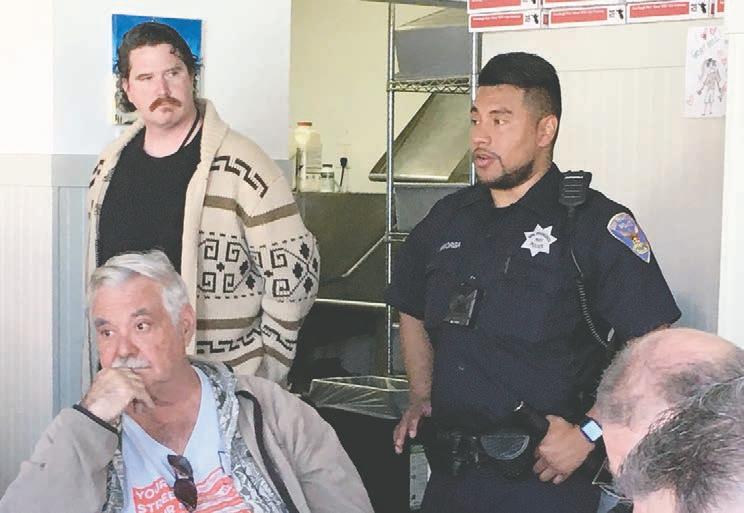
News Year
The New Year wasn’t kind to print publications, starting with a sharp decline in the number of neighborhood newspapers informing San Franciscans. The Castro Courier, New Fillmore News, and Westside Observer all suspended their operations in December or January. “Extra, Extra, Read All About It!” is quickly morphing into “Nothing to See Here!” a placard held up by a homeless individual. There’s only one way to turn things around, if that’s what we want: advertisers need to advertise in community newspapers, and readers need to subscribe, or contribute, to their favorite publications. Otherwise, 2020 will be the year the City’s historic, democracy-enhancing, neighborhood newspapers died, including the View
New Officer


Connecticut Street Deadenders won the Neighborhood Empowerment Networks’ 2019 award for Extraordinary Neighborhood Block Party. Good things are happening on the Hill…San Francisco Police Department Officer Pat McNichol, who had been assigned to Potrero Hill, has been transferred to the Richmond District. His replacement, Officer Pierre Mayorga, is now patrolling the Hill by foot and bicycle. Mayorga encourages community members to report all untoward incidents. The resulting data can be used to justify requests for more officers and to crack cases.
New Buds
Last month, the San Francisco Board of Supervisors (BOS) approved an ordinance ratifying a development agreement between Kilroy Realty and
San Francisco Flower Mart vendors. The arrangement includes a 90-day “cure period” for a judicial challenge by any Flower Mart vendor opposing future approval “as a safeguard to insure that the City will have ample time to respond to an administrative challenge” if a dispute is lodged before a regularly scheduled BOS recess or holiday, said Gloria Chan, director of communications for the Office of Economic and Workforce Development . The agreement has language reinforcing the existing Central SoMa Legacy Business and PDR Support Fund, allowing the City to consider contributing additional monies to the Fund…Late last month a pre-application community meeting was held to discuss relocating the Flower Mart to the “Corovan” site, at 901 16th Street.
Reparations
Last month, District 10 Supervisor Shamann Walton, along with School Board member Stevon Cook , City College Trustee Shanell Williams, and former District 10 Supervisor Sophie Maxwell, among others, announced the formation of an advisory committee to create a reparation plan for what remains of San Francisco’s African American community. African Americans, enslaved in the United States until 1865, though not in California, may be the nation’s most historically oppressed group, next to Native Americans, who were dislodged from their lands and subjected to genocide. Walton and his collaborators appear to be seeking financial compensation for those harmed by past injustices and their descendants. How wide a net is being thrown is unclear; after all, women weren’t allowed to vote until 1920…

Editor,
Letters to the Editor
Apropos of recent View articles about new residential developments, am I missing something? I’d think that building all luxury housing will also help create affordable housing, since that’d free up the previous units from the new owners. The previous units are probably not as luxurious.
Raymond Chui Pennsylvania AvenueThe Sea Star Continues to Shine
BY JAY CHENLocated a few steps from Muni’s 20th and Third Street T-Line stop, the Sea Star is a contemporary bar with a long history. The establishment’s décor – a canoe hangs above the pool table, there’s seaweed-esque wallpaper, a diving helmet sits behind the bar – pays homage to its name and Bay proximity. Its extensive cocktail and beer offerings have been crafted to hook modern humans seeking alcoholic choice and creativity.
Tavern. In 2013, the owners of Southern Pacific Brewing Company, Anthony LaVia, Chris Lawrence, Andy French, purchased the saloon and rechristened it The Sea Star in homage to its former name. The appellation was kept when the current owners, Walton, Gilbert, and Shaw, acquired it in 2015.
Editor,
The January issue provided an interesting juxtaposition of development/real estate issues that beg for comment, especially given the frenetic pace of change over the last several years. The possibility of the Flower Mart relocating to the Corovan site gladdens the heart given the many legal skirmishes that’ve recurred related to development at that location. Various community leaders quoted in the article raised seemingly specious arguments regarding trucks and the relative merits of building yet another huge, primarily market-rate, housing project on the property, as opposed to trying to maintain some diversity in our neighborhood in the form of true production, distribution, and repair businesses.
Speaking of greed, the closing of My Gym in Dogpatch is heartbreaking given its apparently positive impact on the community and the children growing up here. It reminded me of the fate that we suffered in 2013 when the rent on our favorite yoga studio, Yogasita, was doubled and Susannah Bruder, our friend and teacher, was forced out, with her a wonderful community of people who shared in the joy of working with and learning from her.
Perhaps there’s some hope, though. The new Chase Center – called by some the “Greed Center” – hosting the Golden State Warriors may be required by circumstances to actually reduce its prices for seats given the abysmal performance of the team that was stolen from Oakland. Commoners might even be able to afford to go to a game.
Jim Wilkins Pennsylvania Avenue

The Sea Star’s owners – Alicia Walton, Ryan Gilbert, and Tommy Shaw – have operated it for almost a half-decade, but the location has served as a bar for 120 years. According to a century-old fire map drafted for insurance purposes, the space has been a saloon since 1899.
Flotsam and jetsam reflecting The Sea Star’s enduring history are littered throughout the tavern. Underneath the long bar is a trough that was used as a urinal and tobacco spittoon before Prohibition . It’s currently employed to drain water from rain-drenched coats or as a footrest. Only a handful of San Francisco bars have kept such obsolete devices.
The bar has been christened numerous times since 1899. The current moniker is derived from The Sea Star Club, a name bestowed by the couple who owned the place between 1989 and 2011. That year the proprietor of The Dogpatch Saloon, Christopher Webster, bought, renovated, and renamed the establishment Hogan’s Goat
Alicia Walton previously worked at Martuni’s, Elixir, The Bloodhound, and Brass Tacks, and co-founded Comstock Saloon. She won San Francisco’s Ms. Speed Rack, a speed-bartending competition, in 2016, an achievement memorialized on a plaque that hangs behind The Sea Star’s bar. She long wanted to own her own bar, and, along with her co-owners, is committed to serving a diverse, changing neighborhood, periodically providing donations to local schools’ sports team and Planned Parenthood.
Japanese whisky, original and classic cocktails, and numerous beers are offered. Canned beers are priced at roughly $6, draft, $8, with innovative cocktails for $10. There’s ample seating, a jukebox, self-service water station, and multiple televisions typically tuned to local sports games. The cocktail menu features the “Sea Star Maki”, a drink comprised of ingredients typically used in sushi, such as ginger and shiso, and “Czechs & Balances”, a balanced, honeyed beverage which includes a fernet made in the Czech Republic. An annual highlight is installment of the tavern’s Christmas Tree and spirited holiday decor.
Victorian Units in Heart of North Slope Potrero Hill!
Rarely available 3 Unit Victorian building on one of Potrero Hill’s best North Slope blocks. Owned by one family for over 40 years, the facade was restored to original Victorian details by the owner. Upper unit has 3 bdrms., 1 ba., great downtown views. Middle and lower units are both 2 bdrms., 1 ba. All the units have vintage Victorian details with upgraded kitchens and baths. Yard and garden at the rear of the property allow for
for ADU at the rear of basement area. All units have central heating and double glazed windows. Steps away from 18th and 20th Street restaurants and and shops and EZ access to freeways and
distance to CalTrain.


Bicycling Memories of Potrero Hill
BY HOWARD ISAAC WILLIAMSCycling Potrero Hill can demand more than a strenuous climb or two… or three. It can be an adventure, intended or not. I first discovered the Hill as a bike messenger after moving to San Francisco in 1982. A notable neighborhood feature is that while it’s a hill, it’s shaped like a mountain. Most San Francisco knolls have up and down slopes. The Hill’s contours, uneven ridgeline and dead-end streets require cyclists to properly navigate it to avoid having to make an extra climb. A navigational error can add an unnecessary steep ascent.
In the previous century, before the technology industry proved itself “disruptive,” a messenger might pick up several small packages in Financial District high rises, sprint south to make deliveries in South-of-Market and Showplace Square and then climb the Hill’s steep pavement, usually up to 18th or 20th streets. Along the route there might be a package to be retrieved on the Hill for delivery back Downtown. And the rider might stop for some needed calories at Chiotras, the Hill’s historic “corner store not on a corner.”
To make a pickup in the Mission District, the messenger would wind down what’s truly the world’s crookedest street and over the freeway. Or the courier might ride the other direction to deliver in Dogpatch, Bayview, Candlestick Park and beyond.
Somewhere on the Hill’s upper northern slope a courier might pause to
view the Bay Area; the draw was most often the Downtown skyscrapers. Less than half an hour earlier he’d been in those buildings; now they looked far away. In this moment of serenity, the high rises seemed almost otherworldly compared to the noisy, jampacked streets they occupied.
My courier work introduced me to the Hill, but it was my career in mosquito control that took me everywhere in the neighborhood. A mosquito control technician rides their bike on every City street, except the Presidio, to inspect sewer basins. If the basin contains water, the technician drops an organic larvicide into it to kill mosquito larvae.
In my eight years as a mosquito control tech people occasionally asked me what I was doing. Whether I was in Pacific Heights or Potrero AnnexTerrace, San Franciscans seemed to respect the difficulty of this public service task that wasn’t bothering anyone. Except baby mosquitoes.
Messengers and mosquito control techs find money, tools and other valuables on the streets. One Indian summer afternoon in 2015, I was working mosquito control on Carolina Street. I shifted into low gear to complete my climb to 22nd and Carolina streets, a 320-foot high peak. Approaching the intersection, I saw a box sitting in the middle of it. As if to reward me for climbing to its peak, the Hill had given me a case of wine!
With bungee cords, I carefully strapped the case to my rear rack and walked my bike down the hill. At Potre-
ro del Sol Park, I rendezvoused with co-workers and gave them a few bottles. Later, one colleague went online to look up the prices. The case’s total value was more than $600, making it my most valuable “ground score” ever.
PUBLISHER’S VIEW from page 2
indicates that early inhabitants were Polynesian. Somehow, they were able to find the tiny land dot, and travel on modest-sized wooden craft over hundreds of miles of uncertain ocean with sufficient supplies to create lasting settlements.
The subsequent deforestation and collapse of a society capable of creating immense, sophisticated, monuments may have been caused either by aggressive overharvesting of the Easter Island palm – an essential ingredient for food, shelter, and boatmaking – or the proliferation of rats, introduced by the islanders when they first arrived, which gobbled up the palm seeds necessary to regenerate the forest.
The coming of slave-mongering European adventurers, with their nasty diseases, no doubt served as the coupe de grace to an already deeply compromised culture. It’s possible that the moai, seeing what was happening to their once proud acolytes, face-planted themselves in shame.
It’s hard not to think of Rapa Nui as a metaphor. As we plastic-pollute our own Earth Island to a hot catastrophe we distract ourselves by erecting different kinds of head-and-torso figures,
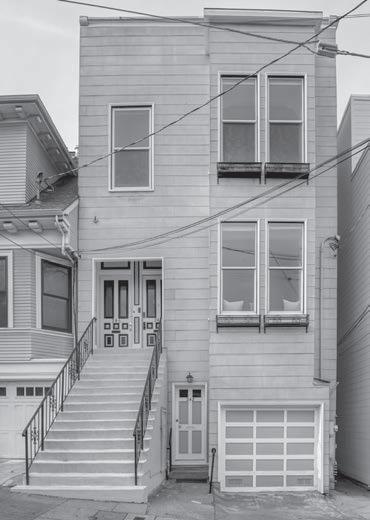
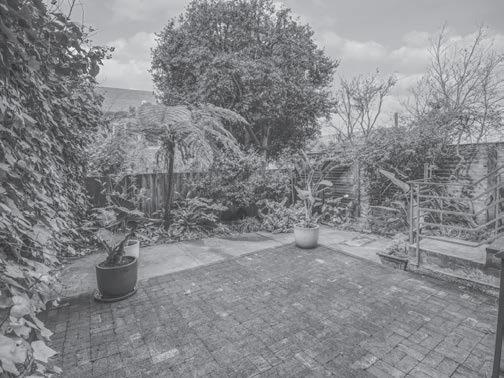
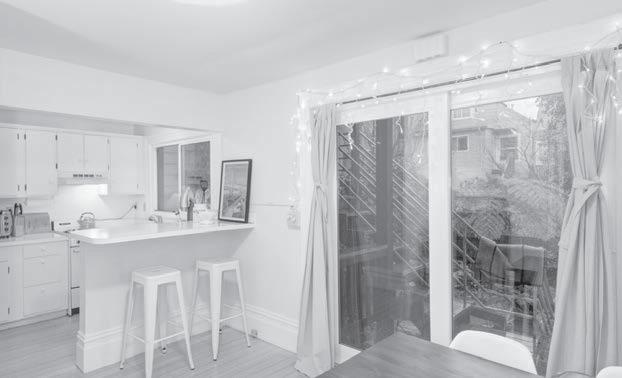
mostly on social media. Thousands – maybe hundreds – of years from now, what will tourists from another planet make of our changed but still beautiful Earth, and its mysterious monuments? Before then will we have toppled Facebook as a false god, ultimately forgetting why we’d been so intensely devoted to it? What other beliefs are we worshipping, sacrificing our attention and intention to, using as a distraction to avoid having to deal with accelerating ecosystem erosion and social disfunction?
Rapa Nui infiltrates the subconsciousness, tapping into the earliest of genetic memories, as if its already inside us. It’s easy to contemplate returning to the Island, in mind or body, to revisit a gorgeous, titillatingly terrifying, unknowable past that may be our future.
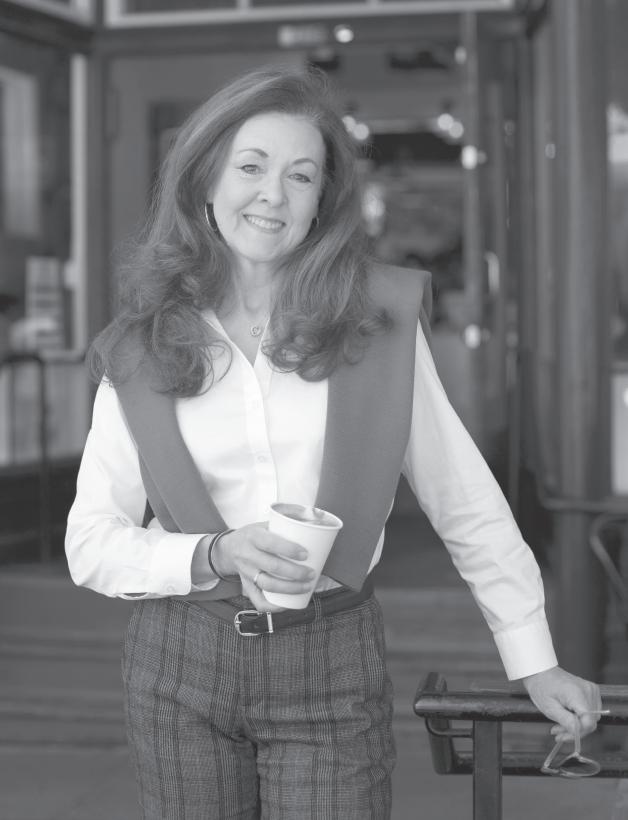

California Home to Hundreds of Native Bees
 BY ROSALYN JOHNSON
BY ROSALYN JOHNSON
There are roughly 1,600 species of native bees in California. The insects are active when their favored flowers – those that provide nectar and pollen to support reproduction – are available. When those florae aren’t
present, neither are the bees.
Although some bees are active during the rainy season, most are either still developing or hibernating in their ground or cavity nests, waiting for the right floral season to come around.
Because plants and bees evolved together there’s probably a bee that

fits every size of flower. Bees and vegetation are closely adapted to each another, arising from their beneficial interactions during flower pollination. Bees use flower pollen and nectar to provision their nests. Flowers also serve as patrol sites for male native bees looking to mate with nest-building, pollen-collecting females of the same species.
Flowering plants need help with reproduction since they cannot move to their potential mates. Although some release pollen on the wind to fertilize same-species flowers, others have their pollen moved from flower to flower by a nectar-attracted animal, often a bee that’s been dusted with extra pollen.
North American native bees are distinct from Honeybees, which were brought to the United States by Euro -
and crop pollination. They compete for resources with native bees. Honeybees are arguably the most recognizable bees in America, but they’re domesticated insects, living in human-made hives, deployed mostly to service agriculture. Expanding native pollinator vegetation increases resource availability to native bees.
Bumble and Carpenter bees are large – often more than one inch – generally black and yellow or black and tan. Bumble bees can fly throughout the winter since San Francisco’s mild climate rarely dips below 50 degrees Fahrenheit, taking advantage of winter-flowering plants, such as Cyclamens and Amaryllis. Bees can also be less than one-quarter inch.



In the 1970s and early-1980s,
when the Achenbach Foundation of Graphic Arts at the Palace of the Legion of Honor still had print exhibitions, I was exposed to the Old Masters, the pre-surrealist Max Klinger and the local artist Stan Washburn, who had a solo exhibition there. I became fascinated with the process of printmaking, especially etching, and decided to pursue the practice of etching techniques. I spent several years honing my skills at the Graphic Arts Workshop, an artists’ print cooperative now located on Third Street. In developing my practice, I often found inspiration or a departure point in the works and techniques of the master etchers and engravers, a bridge between past thought and contemporary issues, one that sheds light in a unique way on such concerns. The title of this work, The Frailty of Realization, is derived from the writings of Bruno Schulz, who wondered if the substance of what we choose to call reality can really be substantial enough to support the immensity of ideas from the imagination, whose integrity demands the resistance to incarnation. As the etching progressed, I began to think of it as a kind of summation of my work up until the present.
~ David AveryPotrero Stage Launches its 25th Season
BY CONNOR FITZPATRICKPlayGround, a resident company and founder of Potrero Stage, located on 18th Street, is in its twenty-fifth season. The theater group started 2020 with its third annual PlayGround Solo Performance Festival, presented through February 9.
“Showcasing eleven creator-performers, including eight Bay Area premieres, this festival pairs two oneact solo performances together into full double-bill evenings of theater. No two pairings are the same, so audiences are encouraged to see multiple evenings and discover tour-de-force performances from a diverse and inclusive roster of Bay Area innovators! Whether it be through comedy, musical, drag, spoken word, or storytelling, this Fes-
tival is sure to inspirit the individual in us all,” said Potrero Stage’s Chris Steele.
In collaboration with other resident companies, Crowded Fire Theater and Golden Thread Productions, Potrero Stage will launch their collective 2020 seasons with On the Periphery by Sedef Ecer, an American premiere directed by Erin Gilley. “Set in Istanbul and Paris, this rarely-told story of migrants in Istanbul’s urban slums takes a lyrical, funny, and deeply human look at hope and home against all odds” said Steele. On the Periphery runs from February 23 to April 4.
A new arrival to Potrero Stage is Same Boat Theater Collective, which’ll stage its production of The Emeryville Horror from April 23 to May 3. According to Steele, the play focuses on “the

effects of climate change and environmental degradation on underprivileged populations in the Bay Area.”
Potrero Stage memberships can be purchased for $25 a year. Members are given discounted access to productions and events.“On average, members
Sometimes the thing
recoup their cost of membership with just one pair of tickets purchased for any of the work debuting this season,” said Steele. For more information: https://playground-sf.org/playgroundpotrero-stage-memberships.
looking for is right in front of you. In fact, it’s been here all this time. With really good coffee. And cool friends. Let’s hang out.

• LIGHTEN AND BRIGHTEN I it is ti e to re aint consider lighter colors that ill a e our ho e brighter and eel ore s acious.
• OUT WITH THE OLD—It is easy to accumulate clutter even after just a few years. Donating or discarding unneeded ite s can a e a ho e eel ore s acious and a e our uture move easier.
• MAKE IT SHINE here is nothing ore i ortant than ensuring our ho e is clean.
• DON’T FORGET SMALL THINGS WITH BIG IMPACTS i le ste s li e ainting the garage oor or lanting bright o ers near our ho e s
a

COMMUNITY | FEBRUARY

Now through 2/9/20 Sunday
Theater: Playground Solo Performance Festival
The festival features 12 doublebill performances by 11 local artists, curated to celebrate the intersectionality and diversity that exemplifies the San Francisco Bay Area. Tickets $31.50 to $46.50 with multiple accessibility options available. Potrero Stage, 1695 18th Street. For more information and to purchase tickets: https://bit.ly/2NYBrDs
Now through 2/13/20 Thursday
Film: SF IndieFest
SF Independent Film Festival celebrates maverick filmmakers by screening movies made by independent producers at the Roxie and Victoria theaters in the Mission District. Many showings include filmmaker question and answer

sessions. For complete schedule and to purchase tickets: https://bit. ly/2vn0LN2
1 sat
Design: MakeArt Family Day Experience a variety of exhibitionrelated activities for visitors of all ages. View “Survival Architecture and the Art of Resilience” and explore concepts of environmental and structural design, including mini biodomes, popup valentines and rapid prototyping for beginners. 11 a.m. to 3 p.m. Tickets $6 and up available for purchase at the door; free admission for children 12 and under. Museum of Craft and Design, 2569 Third Street. For more info: https://bit.ly/2G6VI5r
2 sun
Hiking: Twin Peaks and Gorgeous Views
Join Ridge Trail volunteers for the fifth annual Super Stroll on Super Bowl Sunday. This 15-mile hike will follow the Ridge Trail as it wanders across San Francisco from Lake Merced to the Golden Gate Bridge. Hike the entire route or bailout at any point along the way, lasting two to seven hours. Meet at 9:30 a.m. Location to be sent. Free, but RSVP required. For meeting information and to RSVP: https://bit.ly/30ST50F
6 thur
Community: Cannabis Retail Hearing
The San Francisco Planning Commission will hold a hearing on Stay Gold’s application to open a retail cannabis outlet and lounge at 667 Mississippi Street. Neighbors of the proposed facility have asked for a discretionary review of the proposal. If approved Stay Gold would become the fifth cannabis retailer in or around Dogpatch and Potrero Hill, with two on Mississippi Street, and one of nine




permitted lounges. 1 p.m. City Hall, 1 Dr. Carlton B. Goodlett Place, Room 400. For more information: https://bit. ly/2tOy9LL
7 fri
Design: Aplat Zero Waste
Designer Shujan Bertrand started culinary design company Aplat with zero waste as a core design principle. Learn more about the creative process behind this local company, and try your hand at creating your own accessories from off-cut industrial production. 6 to 9 p.m. Tickets: $30 general admission. Museum of Craft and Design, 2569 Third Street. For more information: https://bit. ly/2RNjUPD
2/7/20 Friday through
5/2/20 Saturday
Art: Orlando
McEvoy Foundation for the Arts presents Orlando, guest curated by Tilda Swinton and organized by Aperture Foundation, New York. Orlando presents recent and newly commissioned photographs inspired by the themes of Virginia Woolf’s prescient 1928 novel, which tells the story of a young nobleman during the era of Queen Elizabeth I who lives for three centuries without aging and mysteriously shifts gender along the way. In 1992, filmmaker Sally Potter released a now-classic adaptation of the book with Swinton in the starring role. Exhibit, 5 to 8 p.m. Opening reception Saturday 2/8/20, 5 to 8 p.m. Free. McEvoy Foundation for the Arts, 1150 25th Street, Building B. For more information: https://bit.ly/30Ge72g
8 sat
Sports: KNBR Giants FanFest
Featuring live KNBR broadcasts on the field, player question and answer sessions, free autographs, walk or play catch on the field, weather permitting, self-guided tours, a kids zone, and more. Plus a chance to take photographs with the World Series trophies. 10 a.m. Free. Oracle Park, 24 Willie Mays Plaza. For more information: https://atmlb. com/3aInvqT
Beverages: Harmonic Brewing
Part of SF Beer Week, Island Vibes Food Fest commemorates unique eats from Southeast Asia and beyond. Free, no reservations required. 2 p.m. Harmonic Brewing, 1050 26th Street. For more information: https://bit. ly/36ot627













1. Top Line ( Revenue)
Is anyone buying what you’re selling? If not, you don’t have a business.
8 sat
Art: Aperitivo con gli Artisti
The Museo Italo Americano presents “5 Artisti,” an exhibit of painting, sketches and photography by five local artists: Sofia Carmi, Art De Fabio, Robert La Rocca, Tito Patri and Carlos Pillado. Join the conversation about the works at a reception with the artists on Saturday, February 2. Free; RSVP required at info@sfmuseo.org. Museo Italo Americano, Fort Mason Center, 2 Marina Blvd, Building C. For more information: 415.673.2200
Literature: Jenn Lyons
Party for local author Jenn Lyons, who recently published her first book, Losing Siggie. Free. 6 to 8 p.m. Farley’s, 1315 18th Street.
2/8/2020 Saturday and 2/9/2020 Sunday
Holiday: Lunar New Year
Celebrate the Year of the Rat with a fair featuring more than 120 booths, concessions, and activities. Entertainment for all ages, including Chinese folk dancing, opera, drumming and more. Get a family photograph with giant puppets, dragons, and other memorable artifacts from the parade. Fair, Saturday, 10 a.m. to 4:30 p.m. and Sunday, 9 a.m. to 5 p.m. Grant Avenue, from California to Broadway; Sacramento, Washington, Jackson and Pacific between Stockton and Kearny. Parade, Saturday: 5 to 9 p.m., beginning at Market and Second
Rickshaw Bagworks owner and Dogpatch resident, Mark Dwight, reflects on his experience operating his small business over the past 13 years, and concludes it's not all that complicated. While by no means easy, running a business is as simple as one, two, three...

2. Bottom Line ( Profit)
Are you making any money doing it? If not, you don’t have a sustainable business.
streets. Free. For more information: https://bit.ly/38J21sh
2/8/2020 and 2/15/2020 Saturdays
Environment: San Francisco Botanical Garden Magnolia Bloom
The annual bloom of nearly 100 rare and historic magnolias, with trees reaching 80 feet, is one of San Francisco’s most breathtaking natural marvels. Velvety silver buds on the oft bare branches of these elegant trees, many rare and historic, open into dazzling pink, magenta, and white flowers, filling the wintery garden with dramatic splashes of color and sweetly fragrant scents. Two one- and a half-hour magnolia tours a day: 10 a.m. and 12 p.m. $28., garden admission included. Heavy rain cancels. San Francisco Botanical Gardens, 1199 Ninth Avenue. For more information and to purchase tickets: https://bit.ly/2ROK18V
12 wed
Community: Green Benefit District Elections Deadline
GBD Board elections take place this March. Interested in serving on the board? Candidate applications open now through February 12. For more information: info@GreenBenefit.org or https://bit.ly/2NZFYW7
Music: James Everett
Live music by James Everett, a San Francisco native with a sound and

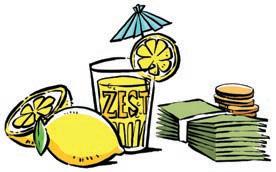
©

3. Story Line ( Brand )
Are you making a name for yourself?

Lucky Takes a Nap. See other, more lively, felines at the Cat Video Fest on January 22. PHOTO: Helena Chiu
performance style that’s reminiscent of the Rat Pack days fused with sprinkles of Rhythm and Blues, Jazz, Pop and Neo-Soul. Free. 7:30 to 8:30 p.m. Farley’s, 1315 18th Street.
2/14/20 Friday and 2/15/20 Saturday
Music: Jonathan Yonts
Live music by Jonathan Yonts. The “Musicteller” utilizes live looping and a unique style of guitar playing to create a dreamy, atmospheric, singersongwriter presence that’s peaceful with a dash of edge. Free. 7 to 8:30 p.m. Farley’s, 1315 18th Street.
2/15/20 Saturday through 3/15/20 Sunday
Theater: The Full Monty
Based on the cult hit film, The Full Monty, a ten-time Tony Award nominee, is rife with honest affection, engaging melodies and what might be the most highly anticipated closing number of any show. Leslie Waggoner directs and choreographs the production. Rated PG-18, with mature language, stripping and partial male nudity. Tickets $30 to $85. Victoria Theater, 2961 16th Street. For more information and to purchase tickets: https://bit.ly/2tPsPYZ
19 wed
Music: Soul Delights
Soul Delights returns with energetic Rhythm and Blues. Sing along and dance in your chair. Free. 7:30 to 8:30 p.m. Farley’s, 1315 18th Street.
20 thur
Design: “Make” Engage with hands-on projects, community discussions and films focusing on the exhibition “Linda Gass: and then this happened....”
6 to 9 p.m. Tickets available at the door: $8 general admission; $6 students/seniors, free for members. Cash/Square bar for guests 21 and over. Museum of Craft and Design, 2569 Third Street. For more information: https://bit.ly/30V4T2E
21 fri
Comedy: Anthony Zuccaro
Stand up comedy, hosted by Anthony Zuccaro. Free. 7 to 8:30 p.m. Farley’s, 1315 18th Street.
22 sat
Film: Cat Video Fest
A compilation reel of the latest, best, cat videos culled from countless hours of unique submissions and sourced animations, music videos, and classic internet powerhouses. Screening events take place throughout the world in a host of venues to raise money for cats in need. 2 p.m. and 4 p.m. $13. general admission; $9. seniors. A percentage of the proceeds benefit Give Me Shelter Cat Rescue. Roxie Theater, 3117 16th Street. For more information and to purchase tickets: https://bit.ly/36tIdr4
27 thur
Science: Exploratorium After Dark In a world that’s wired, how much information is being collected, and how much of it is useful? Big Data has the potential to transform our understanding of ourselves and the world around us, but does its value outweigh the risks of sharing it? 6 to 10 p.m. $19.95. Exploratorium, Pier 15. For more information and to purchase tickets: https://bit.ly/2RrbcHV
She also learned from Rich Stallcup, one of the founders of the Point Reyes Bird Observatory. She’s been on many birding trips in the Bay Area and around most of North America, including Nova Scotia and Newfoundland.
“The Creek really got me interested in birding,” Kamienecki said. “The more you see of them, the more you see of everything else,” referring to the seasonal and habitat differences that can occur from spots as little as a few yards apart.
One of Mission Creek’s charms is the plant life along the pathways.
California Gumplants, with their mellow yellow blooms, front the water and provide habitat for various sparrows. White-Crowned are abundant, occasionally joined by Golden-Crowned; a Song Sparrow makes rare but vocal visits. Anna’s Hummingbirds stake out perches atop the trees on either side of the walkway. Nesting birds on the Creek include Anna’s Hummingbirds, Bushtits, Black Phoebes, and BlackCrowned Night Herons.
January’s herring run attracts various gulls and grebes. “Grebes also eat aquatic vegetation,” Kamienecki said. “Cormorants eat mostly fish. Buffleheads eat insects, crustaceans

Along the esplanade, Gingko and Maple trees growing behind Berry Street’s residential buildings are favored by House Finches and Yellow-Rumped Warblers, also know as “butter butts.” Ceanothus, Mexican Sage, Salvia Little Kiss, and Hebe shrubs in their riot of blues, reds, and lavenders also brighten this side of the promenade.
Flocks of little Bushtits flit from one African Sumac tree to another on the side overlooking the north bank.
and fish. The Great Blue Heron eats mostly fish, but is opportunistic and eats small mammals, rats and baby birds; the Great Blue wipes out the Mallard babies every year! Egrets eat insects. Scaup eat mollusks and aquatic insects. Mallards eat aquatic insects and vegetation. There’s a terrific book that every birder should have called Birder’s Handbook, by Paul Ehrlich, David Dobkin and Darryl Wheye. It discusses nesting, diet, what the eggs
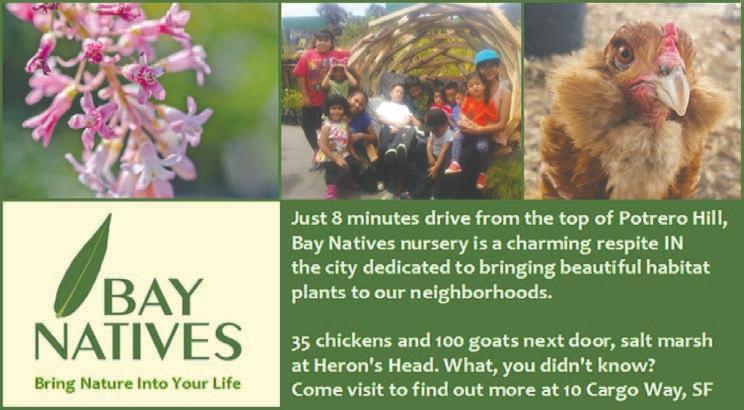
look like. So much information on every species. I consult it all the time.”
In 2019, participants in the Great Backyard Bird Count around Mission Creek tallied 35 species over four days. There were year-round residents, migratory species commonly seen during winter months, and a few that periodically make it onto Mission Creek’s GBBC list, or which made their debut. A solitary Great Egret was counted; it’s infrequently seen but had been spotted before. A Pelagic Cormorant made a brief appearance by the Fourth Street Bridge last year; it’s been listed in past editions of Mission Creek’s GBBC, but isn’t as common as Double-Crested Cormorants, often seen on the dilapidated pilings with wings outstretched to dry wet feathers after diving.
It’s important to be able to distinguish related species that resemble one another and dwell in the same habitat, as a means to differentiate between, say, Western and Clark’s Grebes, or the smaller Horned and Eared Grebes, which in February wear their winter plumage.
The pi èce de résistance in terms of unexpected 2019 additions was the buffy-colored passerine with a peaked crown, seen at the grassy lots leading off the traffic circle into Huffaker Park, exhibiting classic flycatcher behavior by sallying from and returning to a chain-link fence to catch bugs. Black Phoebes are common around the Creek, but this was a Say’s Phoebe. A Townsend’s Warbler appeared in Huffaker Park for one GBBC a few years ago, an exciting sighting.
Absent from last year’s count were Western Grebe, Mourning Dove, Eurasian Collared Dove, European Starling, Brewer’s Blackbird, and House Finch. All frequent the locale and have been sighted often since. Killdeer and Red-Winged Blackbirds, both previously counted on the GBBC, seem to have disappeared from Mission Creek. These species were often seen at the vernal pool in the open lot at 16th and Illinois streets, not far from the Creek, in years past. The Chase Center stands on that location today.
Kamienecki started the annual event in part because birding is “a great way to meet neighbors. No experience is required. You learn a lot. When you start looking at birds, and knowing their behavior, it just enhances your appreciation of life and everything around you. We gather afterwards and talk about what we’ve seen,” Kamienecki said. “It reinforces what we’ve seen, it reinforces what we’ve learned,

and it reinforces each other.”
Paul Furman, owner of Bay Natives Nursery, a few miles south of Mission Creek, just across from Heron’s Head Park on Cargo Way, said his mission is “to spread habitat plants into the neighborhoods, not just the parks. Plant native plants, and it will attract more birds to your garden!”
The 2020 GBBC around Mission Creek will meet at 10 a.m. in its usual spot on Saturday, February 15. All are welcome.
HEALTH CARE from front page
that we care, we’re non-judgmental and we’re there for them. Sometimes you start by offering a client socks, shampoo, or a snack. Later you might ask a client their goals, like, “Where do you want to live?””
DPH data indicates that the number of patients experiencing homelessness who received care at Zuckerberg San Francisco General (ZSFG) has been steadily rising, as has the number of times an individual is seen. In Fiscal Year (FY) 2016-2017, 9.1 percent of ZSFG patients had no permanent home, a percentage that rose to 9.4 percent in FY 2017, and 9.5 percent in FY 2018.
A handful of ZSFG residents and University of California, San Francisco (UCSF) fellows train with Street Medicine and Shelter Health. “We can only accommodate a few students, two residents in primary care and internal medicine, three addiction medicine fellows, and three addiction psychiatry fellows,” said Dr. Anita Barzman, psychiatrist for Street Medicine and Shelter Health and volunteer clinical faculty at UCSF’s Department of Psychiatry. “Every year, we also accommodate dozens of other miscellaneous visitors who learn from the team, including premed students, medical students, and doctors from other centers.”
According to Barzman, doctors want to work with the homeless population. “They arrange their schedule to do rotations with us. We provide a multi-day orientation that includes a tour of several sites where they will treat patients,” said Barzman. “Doctors in training help coordinate care. For example, they may see a patient who is being treated in SF General for a substance abuse issue. Later they may see the same patient who has been discharged to Ward 93, an outpatient opiate treatment program.”
HEALTH CARE continues on next page






HEALTH CARE from previous page
Dr. Christine Soran, a UCSF assistant professor, said her year as an addiction medicine fellow with Street Medicine taught her to “meet people where they’re at. Often when I asked people who I saw in Bayview and Hunters Point where they were staying, the vast majority of them were not staying in any one place. I learned to be flexible with my approach. Treating all patients, but particularly those experiencing homelessness, means learning that their goals may be different from yours.”
Soran said her patients needed flexible hours, a space to store their possessions while getting treatment, and affirmation. “First and foremost, it’s important that patients feel respected and shown that their opinion matters,” said Soran.
Drug treatment can play a significant role in providing care to patients experiencing homelessness. Dr. Triveni DeFries, a UCSF assistant clinical professor who trained with Street Medicine and Shelter Health, said patients sometimes use stimulants like methamphetamine to stay alert. “They’re concerned their belongings, which can include important medications, may be stolen. Patients may walk around all night to stay awake. People experience a lot of life trauma. Offering awards, prizes and even money for engaging in care may work. You’ve got to grow relationships that build trust,” said DeFries.
According to Barzman, trusting others and staying sober isn’t easy for patients who have been assaulted or had traumatic brain injuries. “Their ability to think things through has
been affected. They may also suffer complications caused by different addictions. These cause different problems,” said Barzman.
Eileen Loughran, DPH drug user health programs coordinator, estimates that there are 24,500 injection drug users in San Francisco. Loughran oversees a DPH team that participates in encampment health fairs alongside Street Medicine and Shelter Health, the Department of Homelessness and Supportive Housing, Glide Church’s HIV/Hepatitis C Virus Harm Reduction Services, and San Francisco AIDS Foundation Syringe Access & Disposal Services.
“The monthly events are like popup health clinics at encampments,” said Loughran. “We have done several health fairs on the Southside in 2019. At these events, our medical teams treat people for issues like wounds, vaccinations, birth control, HIV care, and addiction,”
Loughran said Street Medicine and Shelter Health have helped patients start a course of Buprenorphine, a prescription drug to treat narcotic dependence, linking participants to a primary care physician. “The Homeless Outreach Team is able to work closely with medical teams and connect people to beds in navigation centers or shelters,” said Loughran.
Loughran said DPH, Glide, and San Francisco AIDS Foundation staff visit public housing complexes to provide HIV/HCV/Sexually Transmitted Disease testing, overdose prevention education, and harm reduction services. During the calls, individuals can get connected to other health services, including primary care. Staff visit Sunnydale on Mondays, Potrero

Democratic Presidential Candidate Elizabeth Warren
U.S. Representative, District 12
Nancy Pelosi
State Senate, District 11 No
State Assembly, District 17
David Chiu
Superior Court Judge, Seat 1 No Position
Superior Court Judge, Seat 18
Dorothy Chou Proudfoot
Superior Court Judge, Seat 21
Rani Singh
DCCC, AD-17
John Avalos
David Campos
Bevan Dufty
Shaun Haines
Matt Haney
Frances Hsieh
Austin Hunter
Anabel Ibanez
Jane Kim
Rafael Mandelman
Sophie Maxwell
Hillary Ronen
Shamann Walton
Shannell Williams
A
B -
C -
D -
E -
Annex-Terrace on Wednesdays, and Hunters View on Fridays.
“DPH also funds and oversees syringe access and disposal sites where drug users can access clean syringes and dispose of dirty ones,” said Loughran. “These programs help reduce the spread of HIV and Hepatitis C. They reduce the amount of syringes on sidewalks,”
According to Shuton, when a patient at a navigation center or shelter has a substance abuse issue it’s factored into their treatment plan. “At larger navigation centers, like Bayshore, we have an addiction medicine specialist on-site once a week,” said Shuton.
Dr. Andreas Mitchell, a secondyear resident physician at UCSF, said it’s critical for hospitals and clinics, including ZSFG, to provide care and referrals to patients experiencing chronic homelessness. Patients without shelter “have a lot of urgent, competing priorities. Many patients don’t have anyone to take care of them after leaving the hospital. We want to offer the most supportive and compassionate care we can, for as long as we can, regardless of the patient’s readiness to engage,” Mitchell said.
Barzman said providing care in a navigation center helps a person experiencing homelessness build a pathway to permanent shelter. “The
housing may not be a nice, new apartment in Dogpatch. It may be a single room occupancy unit in the Tenderloin or the Mission. One of the hard parts of helping patients transition is that there may no relationship to where they are living now and where they’ll find housing later,” said Barzman.
Mitchell said the well-being of people experiencing homelessness could be improved by increasing the number of beds in medical break facilities. “The Medical Respite and Sobering Center at 1171 Mission Street has about 75 beds. If I could do any one thing to help people who were homeless, I would double the size of that center. There people can recover and get assistance like wound care and nursing services from nurses and nurse practitioners,” said Mitchell.
Mitchell also thinks the City should increase the number of shelter beds. “Every day at SF General, social workers, case managers, care coordinators, and doctors get together to discuss patients who are near discharge. We talk about whether we’ll be able to get someone a shelter bed. It’s always 50/50. I have patients who’ve been on the housing waitlist for years. Although I am still in training, I want to do more than discharge people back to the street,” said Mitchell.
WANTED: Freelance Writers
Modest base pay, interesting assignments.
Please contact: editor@potreroview.net


Green Benefit District
Rec Park, in partnership with the Green Benefit District, will be hosting a Community Pop-in Workshop about the renovation of Esprit Park Saturday, February 1, 11 am to 2 pm, at 833 22nd Street (the blue building next to Piccino Coffee Bar). Children are welcome.
We hope that you can join us as we work to finalize a concept design for the park renovation!
CORRECTION: GBD Board Election applications are accepted from 1/22/20 through 2/12/20. Greenbenefit.org
First Saturdays in Dogpatch: A neighborhood-wide event held monthly, rain or shine
• Explore neighborhood shops 11 a.m. to 7 p.m.
• Enjoy great food and drink 11 a.m. to 11 p.m.
• Discover maker market at Center Hardware and 1234 Indiana Street, 11 a.m. to 4 p.m.
• Be inspired at gallery openings at Minnesota Street Project, 6 to 8 p.m.
• See all the details at LoveDogpatch.com
Bay Area makers, small businesses and food trucks: Pop-up in Dogpatch the first Saturday of every month. Find out more at https://bit.ly/2Lo5ekM
Potrero Boosters Neighborhood Association
Be in the know. Meet your neighbors. Make the Potrero a better place. Monthly meeting: last Tuesday of the month, 7 p.m. at the Potrero Hill Neighborhood House. 953 De Haro @ Southern Heights.




CLASSIFIED ADS
Legal Notices
The View now accepts legal notices. Please contact: production@potreroview.net; 415.643.9578.
Subscription Salespeople Wanted
Minimum wage, intermittent work. Editor@potreroview.net
Freelance Writers Wanted
Modest pay, interesting assignments. Contact: editor@potreroview.net
Writer's Companion
View editor available to work with writers at all levels. Groups also available. $50/hour. Editor@ potreroview.net; 415.643.9578.
Muir Beach Vacation Home
Walking distance to the beach, with the crashing waves visible and audible from the place. Three bedrooms, two baths, with a lovely deck. $300 a night, plus cleaning fee. Editor@ potreroview.net; 415.643.9578.
Muir Beach Vacation Studio
Walking distance to the beach, with the crashing waves visible and audible from the place. Includes kitchenette and lovely patio. $195 a night, plus cleaning fee, two-day minimum. Editor@potreroview.net; 415.643.9578.
Got something you need to sell? Have a service you provide? Our Classified Ad section is just the place for you! Cost: Each classified ad is $25 for up to 200 characters, including spaces. A 20-percent discount will be provided for ads paid for six months in advance. Payment, and/ or corrections, must be received by the 18th of each month for the ad to appear in the following month’s issue. Please email all classified ads to office@potreroview.net
CANNABIS from front page
Christina Quiroz.
“This area never contained retail establishments, and the zoning no longer reflects the character of the neighborhood,” Friends of Mississippi wrote in the DR request. The group noted that children passby on their way to Woods Yard Park, two blocks to the east, and Daniel Webster Elementary
and La Scuola International schools, which are three to four blocks away.
However, none of the schools are within the 600-foot range in which state law prohibits dispensaries; the Planning Department determined Stay Gold would be compliant regarding school proximity. La French Teach, a French immersion preschool, is one block away but California law only applies to elementary, middle, and high schools.
NEIGHBORHOOD BUSINESSES
NEIGHBORHOOD AD FORMAT IN THE VIEW
Let your neighbors know what you have to offer!
PREPAY: 2” x 2” 2” x 4”
6 months $345. $690. 12 months $555. $1,110.
Please contact: 415.643.9578 marketing @ potreroview.net production @ potreroview.net

Stay Gold’s three business partners
— Nguey Lay, Angel Davis and Michael Hall — emphasized their backgrounds as multi-generational San Franciscans who are invested in the community.
Lay knew the previous property owner, Wally Chang, who operated a printing facility where his enterprise is located. Davis is involved with multiple community organizations in Hayes Valley where she and Lay own the Fig and Thistle wine bar. Hall received a Certificate of Honor from the Board of Supervisors last year for his 20-year involvement with youth tennis.
Hall’s participation in the business
Outreach February 2020
APPLY TO BECOME A CENSUS
TAKER!
enabled Stay Gold to qualify under the City’s Equity Program, which prioritizes distributing cannabis permits to those who have been prosecuted for marijuana offenses. He’s known Lay since childhood.
When Lay purchased the property in 2011, he established a cannabis manufacturing facility and later launched a delivery service. The indiscernible exterior drew little attention, neighbors admit, and there were no complaints. Although listed on City permit documents as a “floral nursery,”
CANNABIS continues on next page
Census Bureau is recruiting now to fill important temporary positions in San Francisco with great pay ($30/hour) and flexible hours for Spring 2020. You do not have to be a US citizen to apply. Be a Census Taker and make a difference in your community!
Apply online NOW at 2020census.gov/jobs.
FIND FREE TO LOW-COST IMMIGRATION LEGAL HELP IN SAN FRANCISCO
Find free or low-cost immigration legal services in your own language. San Francisco’s Immigrant Support Hub is a safe referral site that can help you with immigration screenings, citizenship applications, DACA renewal, asylum, green card renewal, TPS, deportation counsel and much more at: immigrants.sfgov.org
The SFMTA wants to hear from you!
The SFMTA is currently conducting a survey to better understand perceptions of sharing rides in San Francisco. To connect San Franciscans safely, equitably, and sustainably to their communities, we must make more efficient use of our street infrastructure. Increasing vehicle occupancy through shared rides, either in carpools or shared ride-matching apps, is one way to more efficiently utilize our existing street space. We are trying to identify priorities for San Francisco residents and the barriers they face when considering using shared ride options through this survey.
Take the survey at sfmta.com/projects/shared-rides-pilot
Child support matters can be complicated, stressful, and confusing. The Department of Child Support Services helps parents understand the process so they know their rights and options for making and receiving support payments. Call us today at (866) 901-3212 or visit our office at 617 Mission Street to learn how we can help you. Information is also available online at www.sfgov. org/dcss.
1 hour a week makes a world of difference. Half of San Francisco’s 3rd and 4th graders are not reading at grade level. By volunteering to tutor through the Library’s award-winning FOG Readers program, you can help students in grades 1-4 increase their confidence and gain half a grade level within the first three months. Currently, there are more than 300 children waiting for a volunteer to help change their lives. For more information, visit sfpl.org/fog. To get started, email readers@sfpl.org
Plan for your business’s future. Learn about different succession planning models such as Employee Stock Ownership (ESOP), Cooperatives, and Trusts.
The San Francisco Office of Economic and Workforce Development and Small Business Development Center in partnership with Project Equity have launched a program specifically for businesses that are interested in succession planning. Workshops, one-on-one consultations, and technical assistance will be provided at no cost to interested businesses.
Contact: Susan Ma at susan.ma@sfgov.org or (415)554-6648.
The City and County of San Francisco encourage public outreach. Articles are translated into several languages to provide better public access. The newspaper makes every effort to translate the articles of general interest correctly. No liability is assumed by the City and County of San Francisco or the newspapers for errors and omissions.
CANNABIS from previous page
the company claims it hasn’t been an indoor grow facility and instead has specialized in edibles and topicals. Since cannabis is legal for recreational use, Davis said it’s a natural progression for the business to want to be able to sell on site as well.
At the community meeting concerns were raised about the potential for increased crime, noise, traffic and doubleparking.
Davis said the retail space will be staffed by two people plus a security guard who, in addition to checking identification, will monitor activity within 50 feet of the front door, including preventing double parking and loitering. She’d prefer that the guard be unarmed unless neighbors request it. She added that there are plans to convert a yellow loading zone space in front of the building to one designated for 20-minute parking only.
Additional neighborhood requests can be written into the permit according to Ray Law, an Office of Cannabis representative who attended the meeting. He characterized oversight of cannabis facilities as “strict,” with law enforcement having full access to the business and frequent inspections.
According to Davis the lounge will be reservation-only. “People can use the lounge with friends and smoke a joint as opposed to getting a glass of wine somewhere,” said Andrea Baker, community liaison for Stay Gold. Although Stay Gold’s literature designates a 10- to 12-person capacity, Davis believes there’ll realistically only
be space for seven people.
While lounges were not unusual when dispensaries were medicinalonly, they’re infrequent among new outlets. Law believes the trend away from them is due the 18- to 24-month permitting process, during which most businesses have to pay rent on the additional space. While there were concerns among neighbors about people leaving the facility under the influence, the impetus for lounges is that they reduce the number of people smoking outside after purchasing product.
Meeting attendees had differing interpretations of a Controller’s report, Cannabis in San Francisco, released in December. While Stay Gold emphasized that crime had decreased six percent in areas around new dispensaries, neighbors countered that most outlets open in commercial districts; Dogpatch doesn’t have street dealers to be put out of business.
Friends of Mississippi, in emails to the View, lamented the growing number of cannabis retailers while citing a need in Dogpatch for more grocery stores, childcare facilities and other basic amenities that support families.
There are 37 cannabis storefronts in the City, with 133 in the permitting process. The Controller’s report recommends a moratorium on cannabis storefront applications, stating that average sales at such businesses, including delivery-only, dropped 45 percent from 2013 to 2018. However, Law pointed out that the report also states that it’d be premature to put a cap on cannabis business permits at this time.






























